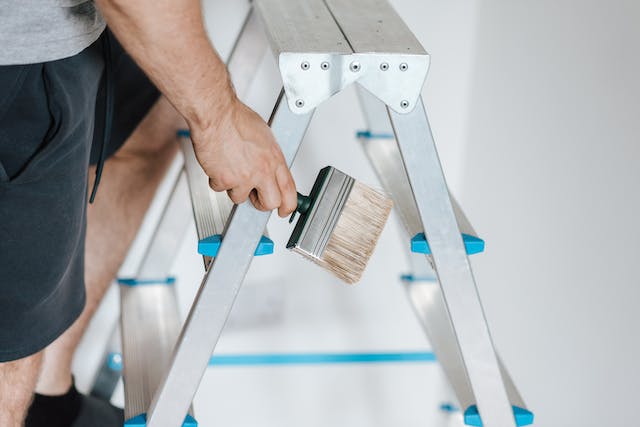
You may have stumbled upon the term home equity as you’re researching owning your own home. To simplify, home equity is the value of your property’s market value less the owed mortgage amount. As time passes and your monthly mortgage payment increases along with the rise in the property’s value, the equity of your home also increases.
This article will provide information on calculating your home equity, including increasing its growth faster and maximizing its benefits.
Read the article below to find out more!
Defining Your Home's Equity
To figure out your home equity, you need to calculate the current market value of your home and the amount you still need to pay off for the home. The money you owe will include mortgages.
To illustrate, if you bought your home for $300,000 and paid 25% as a down payment, you'd be paying $75,000. For additional financing, you applied for a mortgage loan at a bank. At this stage, your home equity is 25% of the value of the home, which is $75,000.
With a flourishing housing market, your property’s value might skyrocket to double its amount, at $600,000. With the regular mortgage payments, you might have already paid the mortgage down to $360,000, making your equity $240,000, or 60% of the value of the home.

Calculating Your Home Equity
It’s easy to determine the equity of your home. You just divide the balance of your mortgage loan by the current market value of your home and convert it to a percentage after subtracting the value of 1.
For example:
$360,000 divided by $600,000 is equal to 0.6
1 minus 0.6 = 0.4 or 40%
Tips to Build Your Home Equity
1. Be consistent in paying off loans
Your home equity rises if you regularly make mortgage loan payments. There are a variety of loans you can apply for to finance a home purchase. This can include amortization loans and interest-only loans. The former increases your home equity at a faster rate since you’re regularly paying for the principal and interest.
2. Prioritize increasing the value of your property
Another increase how much equity you have is by making vast improvements to the home. By doing this, the property’s market value increases after some years, which makes it easier to advertise when selling and you retain control over upgrades to enhance the value further.
There are plenty of updates you can consider to create value, such as enlarging the bathroom space, remodeling the kitchen, updating the flooring, carving a balcony, or improving the property’s exteriors.
But if you’re still saving up for home improvements, you can still build equity through the housing market’s eventual growth.

3. Speed up your payments
The faster you pay off your mortgage loan, the more your equity grows. Typically, home owners make scheduled monthly mortgage payments. But they can decide to make payments every week or every two weeks to increase the home equity.
Before choosing this payment option, however, it’s recommended to meet with the mortgage lender to get approval of a more frequent payment plan.
Maximizing the Benefit of Your Home Equity
It’s essential to remember that home equity is considered an asset and you can use it for more benefits.
Here are a couple of ways to gain more benefits from your home equity:
1. You can sell your home.
Should you prefer moving to another home, by selling your home, the equity from the earnings from the property sale can be taken and used to purchase another property or stored in savings.
2. You can borrow against the property’s equity
Borrowing from your home equity is an option for financing your needs. You’re allowed to use the home equity as a property owner, but it’s more beneficial to keep your funds in long-term investments rather than using them for unnecessary spending. Otherwise, you might lose the property if you keep missing payments.
3. You can fund your retirement.
You can apply for a home equity loan to obtain an income without needing to pay monthly. But this can potentially turn into a difficult issue for the heirs of the property owner, so it’s important to conduct research.

How Home Equity Works and Types of Home Equity Loan
While these loans are useful and provide easy access to low-rate funding, given that the loans will be secured by the property, you need to check the various options for a home equity loan. Home equity loan and investing in real estate are preferable to investing in stocks.
You will want to weigh its pros and cons before making a final decision.
1. Lump sum loan
Home equity loans let you collect the entire funds from home equity and create a monthly payment setup. The terms can be short or long, depending on what you want. This type of home equity loan is a great option if you want an immediate bulk cash payment in case of a costly expense. The interest rate is usually fixed for lump sum loans.
2. Home equity line of credit
A more flexible option is a home equity line of credit, where you can access money in smaller increments as needed. This is useful if you’re planning a large project that takes a long time to finish. A home equity line of credit generally have a variable interest rate so you can potentially end up paying more.

In some cases, the loan interest can be tax deductible depending on the usage of the loan funds. Before picking this loan type, ensure that you have considered the high-interest rates to prepare for potential high fees.
Risks of Borrowing Against Your Home Equity
Before borrowing from your property’s equity, you must understand the risks involved, such as
- The threat of foreclosure if you fail to pay back the loan
- Needing to move out if the property is sold by the lender
- Lower sales proceeds since the lender is rushing to sell the property
Bottom line
Since home equity is valuable when you own a property, you should commit to increasing its growth. To achieve this, you must pay off your loans on schedule and limit home equity loans that won’t contribute to enhancing your property’s value. Choose Rockbridge Real Estate to satisfy all of your property management needs!